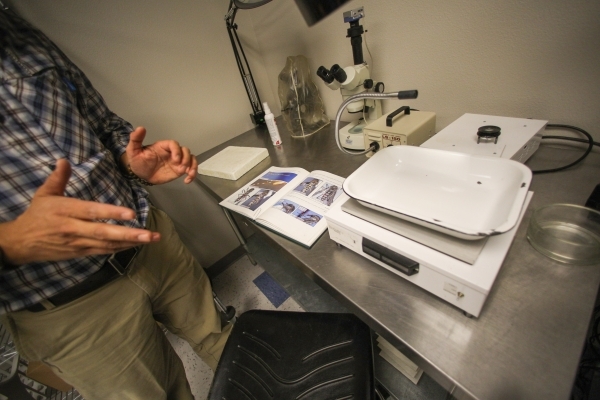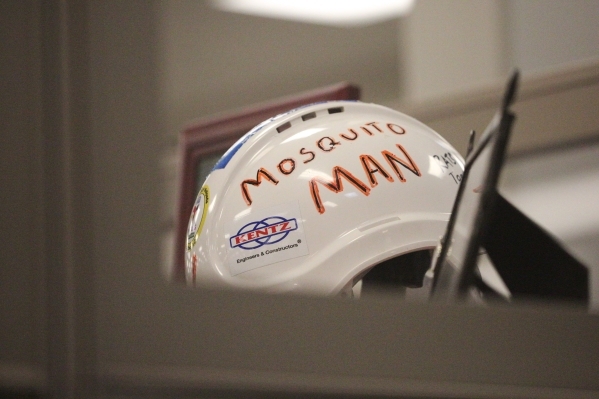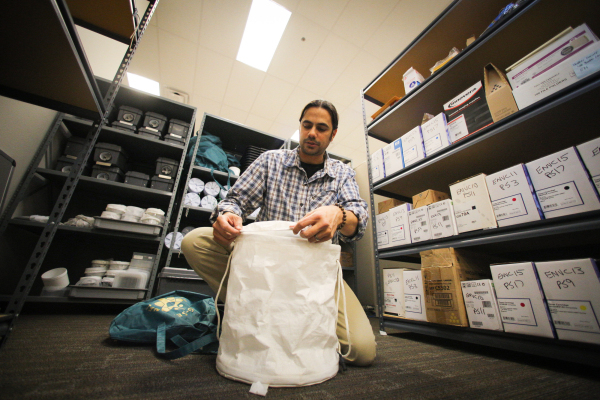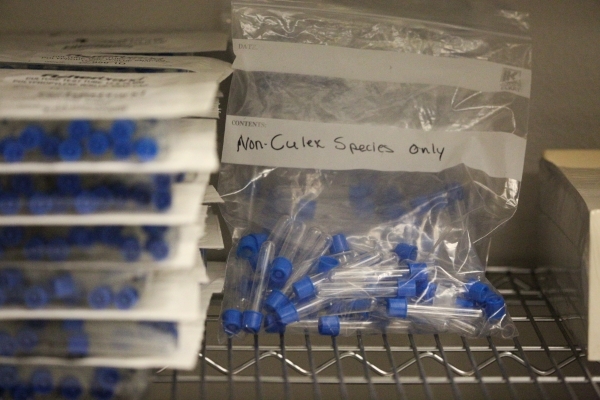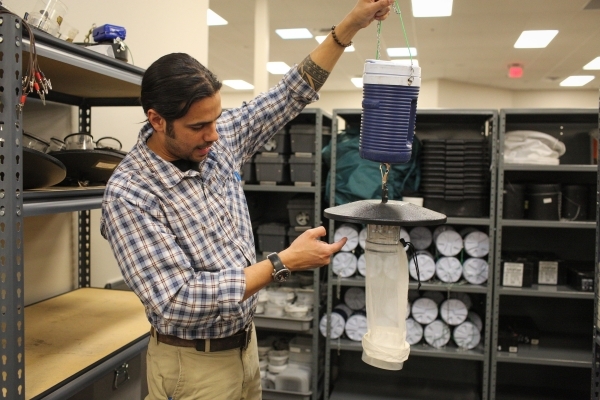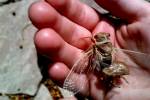Zika virus the latest mosquito-borne illness tracked by local health officials
Stagnant water, dark enclosures, carbon dioxide — different things attract different mosquitoes.
Few know that better than Vivek Raman, an environmental health supervisor with the Southern Nevada Health District.
From April to October each year, his team sets hundreds of mosquito traps across Clark County to keep tabs on the pesky — and sometimes even deadly — insects.
The Southern Nevada Health District began mosquito surveillance in 2004 after concerns arose over the possibility of local mosquitoes carrying West Nile Virus. Between 2010 and 2015, four Clark County deaths were attributable to West Nile, health district medical epidemiologist Tony Fredrick said.
"Now Zika is on the radar, but it is one of many mosquito-borne diseases that we try to keep our eye on," Raman said.
Zika virus disease, a normally mild illness that can cause fever, joint pain, red eyes and rashes, is the latest mosquito-borne illness to develop a high profile internationally. Transmission of the virus has been reported in about 30 countries and territories, largely in South and Central America.
Though 80 percent of infected people never show symptoms, the disease can be transmitted from mother to child during delivery, according to the Centers for Disease Control and Prevention. It has been linked in Brazil to cases of microcephaly, a neurological condition in which a baby's head is unusually small, typically signaling issues with brain development.
No vaccine exists for Zika virus disease, and more than 30 cases have been reported in the United States.
There are no confirmed cases of Zika virus disease in Nevada, according to the state Department of Public and Behavioral Health.
The Southern Nevada Health District has sent two blood samples to the CDC for testing but has not yet received results. If confirmed as Zika cases, they "would not be local exposures," district spokeswoman Jennifer Sizemore said.
The Washoe County Health District has not sent any blood for testing to the CDC, spokesman Phil Ulibarri said.
The CDC Arbovirus Diagnostic Laboratory and several smaller health centers are performing all Zika tests on blood samples because there is no commercially available diagnostic test for the disease.
The types of mosquito that commonly transmit Zika, Aedes aegypti and Aedes albopictus, are not found in Nevada, according to the state Department of Agriculture.
"This is a backyard-breeding mosquito, so it wants small, enclosed dark areas to breed," Raman said of Aedes mosquitoes.
Last year, his team of five environmental health workers collected more than 26,000 mosquitoes. The mosquitoes are sorted and sent to the Nevada Department of Agriculture, which tests the insects for West Nile Virus, St. Louis Encephalitis and Western Equine Encephalitis.
The Department of Agriculture aims to test mosquitoes from every county in the state annually, according to veterinary diagnostician Keith Forbes of the Nevada Animal Disease and Food Safety Laboratory.
In 2015, the department tested 4,080 groups of mosquitoes, each containing about 50 insects, he said.
That's more than 200,000 insects.
No Aedes aegypti or Aedes albopictus have been found in Southern Nevada, though other species of Aedes mosquitoes have been located, Raman said.
That doesn't mean Nevadans should ignore warnings urging people to take precautions, he said.
Researchers believe other types of mosquitoes may be able to transmit Zika virus, and the CDC has issued guidelines alerting men who have visited Zika-affected regions to abstain from sex or use condoms if they have pregnant sexual partners. Men who have been to those areas recently "might consider" the advice even if their partners are not pregnant, the CDC suggests.
Pregnant women have been advised to postpone traveling to areas with Zika outbreaks.
Raman has found mosquitoes carrying West Nile in his own backyard. He suggests locals wear long-sleeved shirts, use insect repellent, and keep their doors and windows screened to protect themselves against a host of illnesses transmitted by the mosquitoes.
"Mosquitoes are very adaptable," Raman said, "so that's why we want to keep our eye on it."
Contact Pashtana Usufzy at pusufzy@reviewjournal.com or 702-380-4563. Find her on Twitter: @pashtana_u



